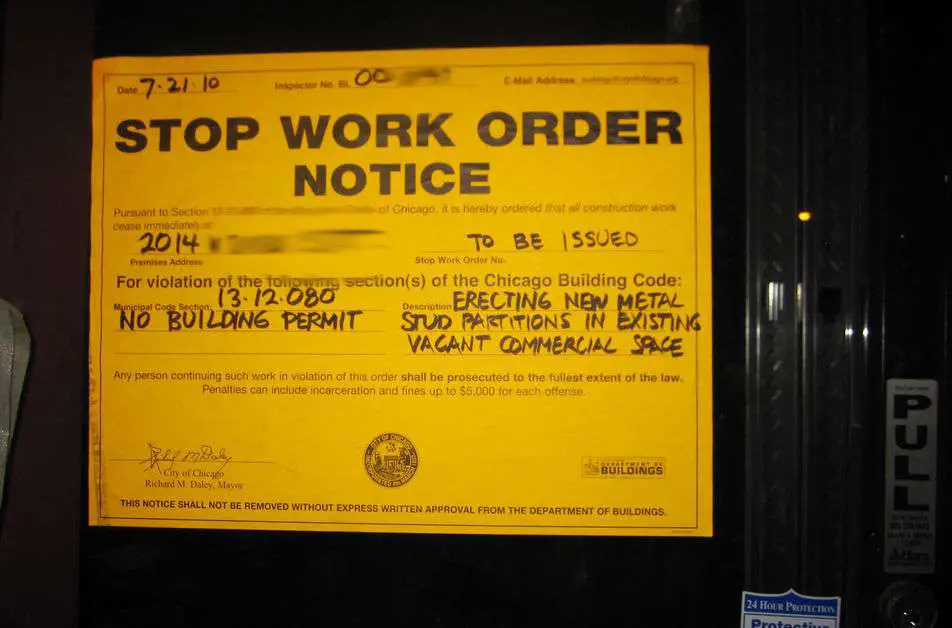Building without a permit can lead to serious legal consequences, putting you at risk of financial penalties, safety hazards, and even potential jail time. If you’re caught constructing a structure without the required permits, you could face hefty fines that may amount to hundreds of dollars. Failing to pay these fines or make the necessary modifications could even result in the demolition of the entire building. Furthermore, if injuries occur due to the lack of permits, the legal ramifications may escalate and potentially lead to imprisonment. It’s not just the legal aspect you need to worry about; insurance companies may also contest claims or refuse coverage if you didn’t obtain the proper permits. Moreover, selling a property without the necessary permits can be a challenging process. To top it all off, your neighbors might report the violations, which could trigger legal action against you. Considering the potential repercussions, it’s crucial to ensure you have the proper permits in place before embarking on any construction project.
Financial Consequences
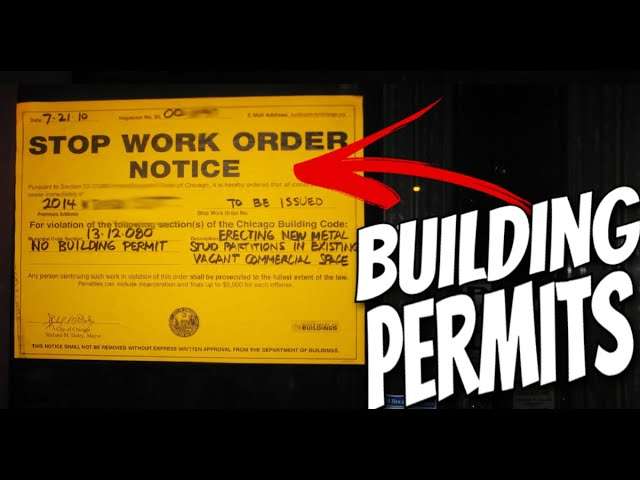
Imposition of Fines
Building without a permit can have serious financial consequences. If you are caught constructing or renovating a structure without the necessary permits, you may be subject to fines imposed by local authorities. These fines can vary depending on the location and the severity of the violation, but they can often be substantial, costing you hundreds or even thousands of dollars. It is important to note that these fines are not just an inconvenience, but a legal obligation that must be paid.
Cost of Legal Fees
In addition to the fines imposed by the authorities, building without a permit can also lead to costly legal fees. If you are caught without a permit, you may need to hire legal representation to guide you through the process and potentially defend your case. Legal fees can quickly add up, and the longer the legal process drags on, the more expensive it becomes. It is essential to consider the financial burden that you may face if you choose to build without the necessary permits.
Demolition of the Structure
Failure to address the violation or pay the fines imposed can result in even more severe financial consequences – the demolition of the structure you built without a permit. If you refuse to comply with the authorities’ demands or make the necessary modifications to bring your construction into compliance with the regulations, local authorities may take action to demolish the structure at your expense. This can be a devastating outcome, not only financially but also emotionally and practically, as all the resources you invested in the construction would be lost.
Safety Consequences
Risk of Accidents and Injuries
Building without a permit can also have significant safety consequences. Without proper oversight and inspection, there is an increased risk of accidents and injuries. Permits are not just a bureaucratic requirement; they ensure that structures are built to code and meet safety standards. By circumventing the permit process, you are putting yourself, your family, and anyone who enters the building at risk.

Potential Legal Action by Injured Parties
If someone is injured or harmed due to the lack of permits and consequent building code violations, they may have grounds to take legal action against you. Whether it is a guest in your home or a worker involved in the construction process, if they can demonstrate that their injury was a direct result of your negligence in obtaining the necessary permits, you may be held legally responsible. This can lead to costly lawsuits, settlements, and potentially even more severe consequences if the injuries were significant.
Legal Consequences for Individuals
Fines and Penalties
As previously mentioned, one of the financial consequences of building without a permit is the imposition of fines by local authorities. These fines can range from a few hundred dollars to several thousand, depending on the location and the severity of the violation. Failing to pay these fines can result in additional penalties and legal complications, making it critical to address the violation promptly and meet your financial obligations.
Possible Jail Time
In some cases, building without a permit can lead to more severe legal consequences, including potential jail time. If there are injuries or significant harm caused by the lack of permits, local authorities may opt to pursue criminal charges against you. Depending on the jurisdiction and the circumstances, you could face misdemeanor or even felony charges, leading to a prison sentence. It is crucial to understand the potential criminal repercussions before deciding to build without the necessary permits.
Difficulty Selling the Property
Building without a permit can also have long-lasting consequences when it comes to selling your property. Potential buyers and their inspectors will likely discover any violations or lack of permits during the due diligence process. This discovery can make it challenging to find a buyer who is willing to take on the legal and financial risks associated with an unpermitted structure. Even if you find a buyer, you may need to significantly lower the selling price or make expensive modifications to bring the property into compliance before completing the sale.
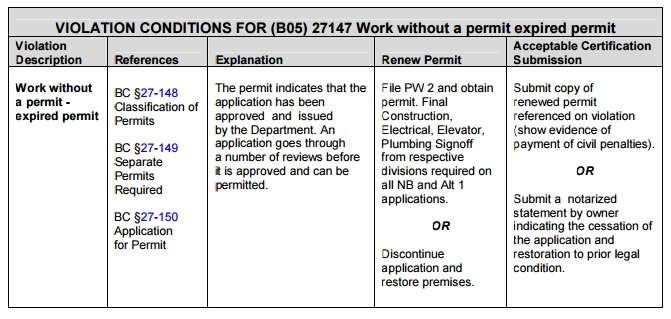
Contestation of Insurance Claims
Insurance companies generally require evidence that a property has been built according to local regulations and permits before providing coverage. If you have built or renovated without the necessary permits and file an insurance claim for damages, your claim may be contested or denied. Insurance companies may argue that your non-compliance with regulations contributed to the damage and refuse to cover the costs. This can leave you responsible for all repair expenses, magnifying the financial impact of building without a permit.
Legal Consequences for Contractors
License Suspension or Revocation
Building contractors face specific legal consequences for constructing without permits. In many jurisdictions, contractors must hold a valid license to operate legally. Engaging in unpermitted construction can lead to the suspension or even revocation of their license. Losing the ability to work legally can have severe financial implications for contractors, as well as damage their professional reputation.
Loss of Reputation and Potential Legal Action by Clients
Building without a permit can seriously damage a contractor’s reputation. Word spreads quickly in the construction industry, and clients will be hesitant to work with a contractor known for disregarding the required permits and regulations. Moreover, clients who have hired a contractor for unpermitted construction may have grounds to take legal action against them for damages, putting their business at risk of expensive lawsuits and settlements.
Potential Lawsuits by Homeowners
Homeowners who discover that their contractor failed to obtain the necessary permits may take legal action against them to seek compensation for any damages or losses incurred. This can include costs related to rectifying the permit violations and any financial or legal consequences faced by the homeowners. Contractors may find themselves embroiled in protracted legal battles that can be both financially and emotionally draining.
Neighborhood Consequences
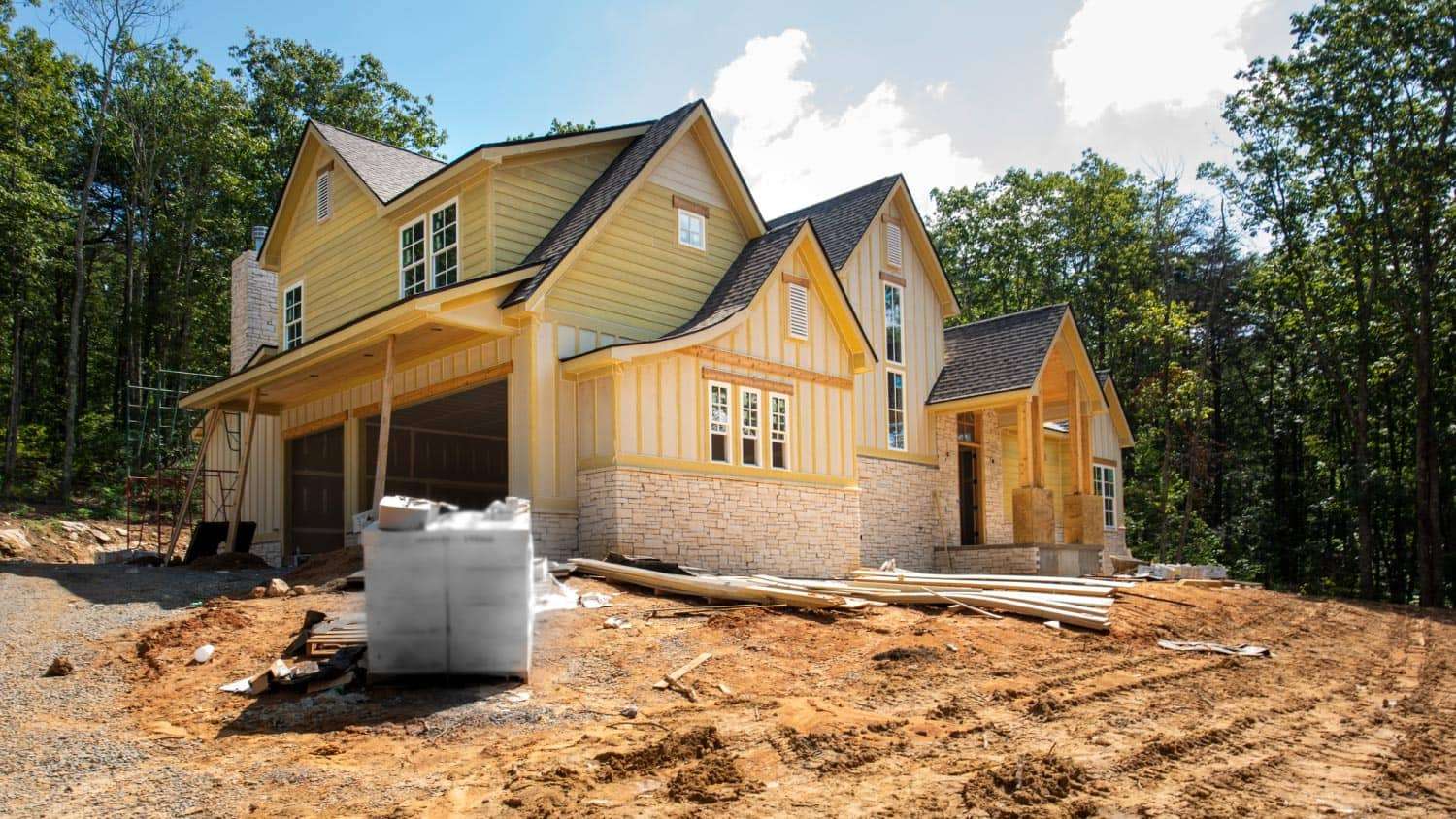
Reporting by Neighbors
Neighbors are often quick to notice construction activities in their vicinity, and if they suspect that a structure is being built without the necessary permits, they may report it to the local authorities. This can trigger an investigation and expose the person responsible to the legal and financial consequences we have discussed. Building without permits not only risks your own well-being and financial stability but also potentially strains the relationship with your neighbors.
Potential Legal Action by Neighbors
If a neighbor discovers that your construction violated local regulations or was unpermitted, they may take legal action against you. This legal action can stem from concerns about property value depreciation, loss of privacy, or breach of neighborhood covenants. Litigation can result in additional legal expenses and the potential for significant financial repercussions, as well as further straining neighborly relationships.
Strained Relationships with Neighbors
Building without a permit has the potential to create tension and strain relationships with neighbors. Even if they do not take legal action, neighbors may feel their quality of life, property values, or sense of community is affected by an unpermitted structure. This strain can create a hostile living environment, making it difficult to maintain positive relationships and a sense of harmony within the neighborhood.
Impact on Building Permits
Increased Scrutiny and Inspection
Building without a permit can lead to increased scrutiny and inspection by local authorities in the future. After a violation has been committed, the property may be subject to more frequent inspections to ensure compliance with regulations. This increased monitoring can be time-consuming, inconvenient, and result in additional expenses to rectify any ongoing non-compliance issues.
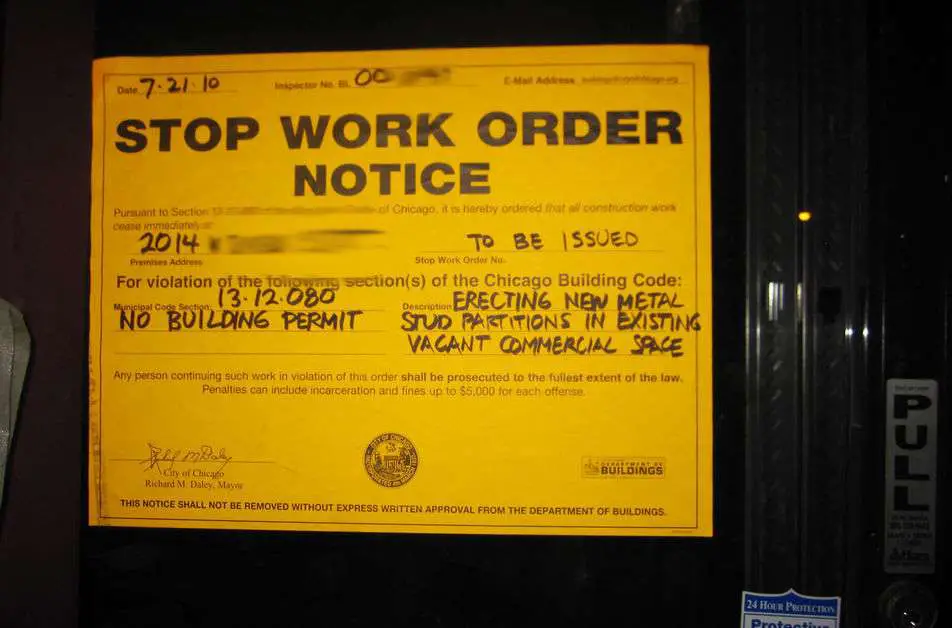
Difficulty Obtaining Future Permits
Building without permits can create long-term consequences by making it difficult to obtain future permits. Local authorities may view the violation as a sign of non-compliance or disregard for regulations, making them hesitant to grant permits for future construction projects on the property. This can severely limit your ability to make modifications or improvements to your home, impeding your ability to adapt the property to your changing needs or preferences.
Legal Process for Building Without a Permit
Issuance of a Stop Work Order
If local authorities discover that you are building without the necessary permits, they can issue a stop work order. This order halts all construction activities until the violation is resolved, putting your project on hold indefinitely. It is crucial to comply with the stop work order to avoid further legal complications or potential demolition of the structure.
Notices of Violation
Once a violation is identified, you will likely receive formal notices of violation from the local authorities. These notices outline the specific violations, the necessary steps to rectify the situation, and the timeframe within which you must comply. Failure to address the violation within the given timeframe can lead to further legal actions and financial consequences.
Appeal Process
If you believe that the violation was unjustly issued or that you have valid reasons for not obtaining the necessary permits, you may have the option to appeal the decision. Each jurisdiction has its own appeal process, which typically involves submitting documentation and making your case to a review board or administrative body. It is crucial to consult with legal counsel to determine the best course of action and understand the chances of success before pursuing an appeal.
Potential Court Proceedings
If the violation is not resolved through the appeals process or by complying with the notices of violation, local authorities may take the matter to court. This can result in legal proceedings, where both parties present their arguments and evidence before a judge or jury. Court proceedings can be lengthy, emotionally exhausting, and incredibly expensive, particularly if legal representation is necessary.
Responsibility for Building Without a Permit
Individual Homeowners
As an individual homeowner, you bear the ultimate responsibility for obtaining the necessary permits for any construction or renovation projects on your property. Regardless of whether you hired a contractor or undertook the project yourself, it is your duty to ensure compliance with local regulations. Failing to do so can result in all the legal and financial consequences outlined in this article.
Contractors and Construction Companies
Contractors and construction companies also have a responsibility to adhere to local regulations and obtain the necessary permits for the projects they undertake. It is essential to hire reputable contractors who have a track record of compliance and professionalism. While homeowners bear the ultimate responsibility, working with a contractor who fails to obtain permits can lead to legal complications, financial losses, and reputational damage for both the contractor and the homeowner.
Consequences for Homeowners’ Associations
Enforcement of Rules and Regulations
Homeowners’ associations (HOAs) often have their own set of rules and regulations regarding construction and renovation projects within the community. Building without the necessary permits can be a violation of these rules, leading to enforcement action by the HOA. This can include fines, penalties, and even potential legal action to enforce compliance.
Fines and Penalties
HOAs have the authority to impose fines and penalties on homeowners who fail to comply with their rules and regulations. These fines can range from minor infractions to substantial financial burdens, depending on the severity of the violation. It is essential to understand and abide by the rules set forth by your HOA to avoid additional legal and financial consequences.
Efforts to Discourage Building Without a Permit
Public Awareness Campaigns
In an effort to deter building without permits, many local authorities and community organizations run public awareness campaigns. These campaigns aim to educate homeowners and contractors about the importance of obtaining permits, the potential consequences of non-compliance, and the benefits of building safely and legally. By raising awareness, these campaigns hope to reduce the number of unpermitted structures and improve overall compliance.
Increased Penalties and Enforcement
To strengthen the deterrent effect, some jurisdictions have implemented increased penalties for building without permits. By imposing higher fines and penalties, authorities hope to discourage individuals and contractors from engaging in unpermitted construction. Additionally, they may allocate more resources to enforcement, conducting regular inspections and acting swiftly when violations are identified.
Streamlining the Permitting Process
To address some of the frustrations and challenges associated with the permitting process, many municipalities are working to streamline the process. This includes simplifying forms, reducing paperwork, and implementing online systems to facilitate permit applications. By making the process more efficient and user-friendly, authorities hope to encourage compliance and make it easier for homeowners and contractors to obtain the necessary permits.
In summary, building without a permit can have a range of legal, financial, and safety consequences. From fines and penalties imposed by local authorities to the potential for jail time, the impact on individuals and contractors can be severe. Additionally, the safety of the structure and the risk of accidents and injuries increase when permits are not obtained. Neighbors may report violations, leading to strained relationships and potential legal action. Building without permits can also impact the ability to sell a property and may result in difficulties obtaining future permits. Efforts to discourage unpermitted construction include public awareness campaigns, increased penalties and enforcement, and streamlining the permitting process. Ultimately, it is crucial for homeowners and contractors to understand the risks and responsibilities associated with building without permits and to prioritize compliance with local regulations.

